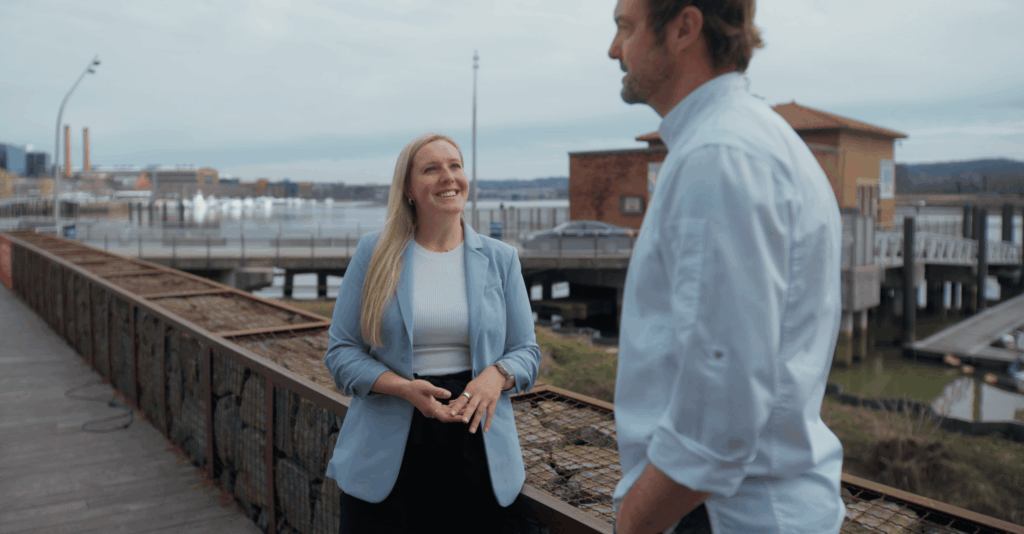As the United States considers how to meet rising seafood demand and strengthen coastal economies, one thing is clear: any development of open ocean aquaculture must be grounded in science, community input, and strong environmental safeguards. That’s why the Coalition for Sustainable Aquaculture (CSA) brings together fishermen, scientists, environmental organizations, and industry leaders who share a common goal – ensuring that if open ocean aquaculture moves forward in U.S. waters, it is done responsibly and in a way that benefits communities and ecosystems alike.
Recent momentum around the bipartisan Marine Aquaculture Research for America (MARA) Act underscores this shared commitment. MARA prioritizes the rigorous research, monitoring, and data needed to understand how open ocean aquaculture can be designed and managed responsibly. CSA members across the country have voiced their support because they know that science-based policy is essential for protecting ocean health, supporting coastal livelihoods, and strengthening America’s seafood future.
Here’s a quick look at three op-eds published following the introduction of the MARA Act, highlighting the diverse voices advocating for sustainable open ocean aquaculture.

Texas Fishermen Wants Safer Seafood and Stronger Jobs – Houston Chronicle
>> Full op-ed in the Houston Chronicle here
Scott Hickman’s op-ed sounds the alarm on a shocking recent FDA recall: foreign-farmed shrimp contaminated with radioactive Cesium-137. Using this unsettling episode as a wake-up call, the Corpus Christi fisherman argues that America’s heavy reliance on imported seafood, much of which is produced under weaker safety and environmental standards, leaves consumers vulnerable and undermines U.S. fishermen who are already struggling to compete. The piece highlights the bipartisan MARA Act as a promising solution that would support local fishermen, like Scott, and promote sustainable ocean practices.
“Through smart policies like the MARA Act, we can begin the research that creates a strong framework for open ocean aquaculture and give Texans more choices to buy affordable, locally grown food. This can help boost the fishing industry by taking pressure off wild stocks and giving fishermen other streams of income in the offseason. It may even allow some newcomers to enter the seafood industry,” writes Scott. The op-ed makes a clear case: safe, sustainable seafood and stronger local economies can go hand in hand.

Tech Expert Sees How Innovation Can Drive Sustainable Aquaculture – IntraFish
>>> Full op-ed in IntraFish here
Kira Smiley, a former director at the aquaculture technology firm TidalX AI, highlights how advanced technology can help monitor fish, manage risk and protect the environment while scaling sustainable aquaculture. At TidalX AI, she saw firsthand how AI-driven cameras, sensors and automated feeding systems can track millions of fish, reduce waste and improve production efficiency. Kira argues that the United States can replicate these successes in open ocean aquaculture – but only with a strong, science-backed regulatory framework.
“Aquaculture still poses risks, as evidenced by rare but nonetheless serious instances of salmon escapes at major salmon farms in Scotland and Norway. But these cases shouldn’t deter support for the MARA Act. To the contrary, it shows precisely why we must invest in research and development to drive responsible progress. We have the resources to learn from mishaps and do aquaculture the right way,” she writes. Her op-ed makes the case that innovation, guided by smart policy, can help America produce safe, sustainable seafood while supporting local communities and protecting the oceans.
Charter Boat Captain Sees Opportunity to Meet Demand, Preserve Mississippi’s Fishing Tradition – Meridian Star
>> Full op-ed in Meridian Star here
Clarence “C-Bo” Seymour, a charter boat captain for nearly 30 years on the Gulf, writes about how sustainable aquaculture could strengthen Mississippi’s commercial fishing industry while preserving a cherished local tradition. Like Scott Hickman, he explains that wild fisheries alone can’t meet growing consumer demand for fresh, local seafood and that science-based open ocean aquaculture can provide a responsible supplement to income in the offseason.
“Imagine a world where you can see red snapper and cobia in the local grocery stores as a quality, homegrown product while the commercial fishing and seafood industries in Mississippi thrive. That could become our reality,” he writes. His op-ed underscores the potential of the bipartisan MARA Act to boost domestic seafood production, attract new talent, and secure a sustainable future for Mississippi’s fishing families.
A Path Forward for Sustainable American Seafood
Together, these op-eds make a powerful argument: America has the tools, talent and technology to expand sustainable aquaculture while supporting local fishing communities. From Corpus Christi to Mississippi and across innovative aquaculture operations, leaders in the industry are calling for smart, science-driven policy like the MARA Act. By investing in research, modern technology and responsible regulations, Congress can help ensure that U.S. consumers have access to safe, locally grown seafood, while protecting jobs, traditions and the health of our oceans for generations to come.
